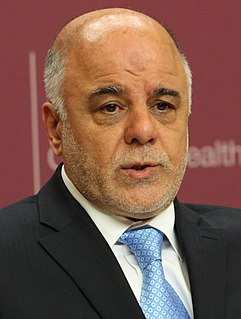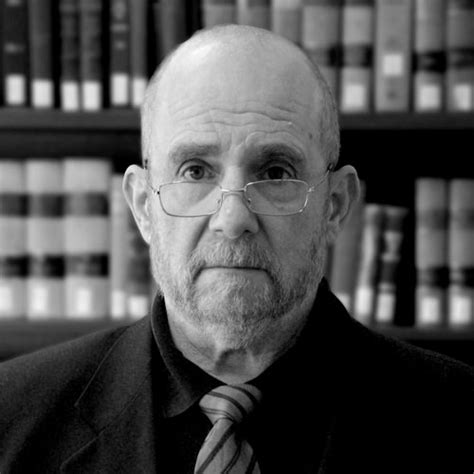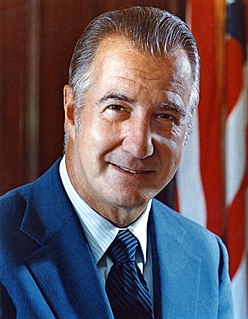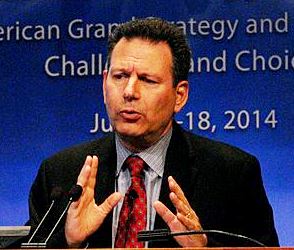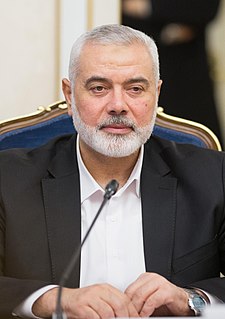Top 1200 Government Policy Quotes & Sayings - Page 17
Explore popular Government Policy quotes.
Last updated on November 22, 2024.
Reagan took an approach to the Cold War dramatically different from any other US President. To wit, he thought we should win. This was a fresh concept. At the time, it was widely ridiculed as a dangerous alteration of US policy. Only after it worked was Reagan's dangerous foreign policy recast as merely a continuation of the policies of his predecessors.
While I am in favor of the Government promptly enforcing the laws for the present, defending the forts and collecting the revenue,I am not in favor of a war policy with a view to the conquest of any of the slave States; except such as are needed to give us a good boundary. If Maryland attempts to go off, suppress her in order to save the Potomac and the District of Columbia. Cut a piece off of western Virginia and keep Missouri and all the Territories.
As the wealthiest country with all the blessings that we have, do we have an obligation to help the outside world? I think we do, as we have an obligation to help everyone within our own borders. The problem is that this automatically gets translated into: "What's the point of having a huge military if we can't bomb people?" That's the problem that I have. Our foreign policy is essentially our defense policy.
Our government does not exist to decide the rights, nor to grant them. Our government exists to protect them. And that is why we have a constitution that limits the power of the federal government to a few specific, but important things and we have abandoned that. We have abandoned it in both political parties.
Sharia has a ruling system, an economic system, a policy and social system, a foreign policy and judiciary system to be implemented, you know, the whole package. Under the Sharia, food, shelter and clothing will be provided for all citizens in addition to basic necessities like gas and water as well. But, it's not like communism or socialism in the respect that you can work for the luxuries.
If people want consultative government, the price is increased complexity and delay in arriving at decisions. If they want speed of government, then they must accept a greater degree of authoritarianism. I suspect that the real answer is that most people prefer the latter so long, that is, as government's decisions conform with their own views.
I support the administrative rules promulgated by the Department of the Interior which permit a Native Hawaiian government to establish a relationship with the U.S. government. If Native Hawaiians form a government consistent with those rules and seek federal recognition, I would likely support the request.
The military has a huge role in the economy [of Pakistan] with big stakes and, as you say, it has constantly intervened to make sure that it keeps its hold on policy making. Well, I hope, and there seem to be some signs, that the military is taking a backseat, not really in the economy, but in some of the policy issues. If that can continue, which perhaps it will, this will be a positive development.
The federal government, state governments will not do without that tax revenue from tobacco no matter what. I've always thought it was one of the most contradictory setups that we have, because everything said publicly about the product is intended to besmirch it, impugn it, and do the same thing to the people that use it. And yet here's the government scoring, I mean, you want to talk about obscene profits, the government doesn't do a damn thing but stick its hand in. The government taxes tobacco at every stage. It taxes tobacco when the farmer's thinking about planting it.
As long-term institutions, I am totally against dictatorships. But a dictatorship may be a necessary system for a transitional period... Personally I prefer a liberal dictator to democratic government lacking liberalism. My personal impression - and this is valid for South America - is that in Chile, for example, we will witness a transition from a dictatorial government to a liberal government.
Contemporary scholars have little explored the preconditions of genocide. Still less have they asked whether a society's weapons policy might be one of the institutional arrangements that contributes to the probability of its government engaging in some of the more extreme varieties of outrage. Though it is a long step between being disarmed and being murdered - one does not usually lead to the other - but it is nevertheless an arresting reality that not one of the principal genocides of the 20th century, and there have been dozens, has been inflicted on a population that was armed.
They that are discontented under monarchy, call it tyranny; and they that are displeased with aristocracy, call it oligarchy: so also, they which find themselves grieved under a democracy, call it anarchy, which signifies the want of government; and yet I think no man believes, that want of government, is any new kind of government.
The greatest bulwark against an overreaching government, as tyrants know, is a religious population. That is because religious people form communities of interest adverse to government control of their lives; religious communities rely on their families and each other rather than an overarching government utilizing force.
If a theology student in lowa should get up at a PTA luncheon in Sioux City and attack the President's military policy, my guess is that you would probably find it reported somewhere the next morning in the New York Times. But when 300 Congressmen endorse the President's policy, the next morning it is apparently not considered news fit to print.
Bipartisanship on behalf of an imprudent policy can be folly, just as partisanship on behalf of a just cause can be wise. What is clear is that politics will not stop at the water's edge simply because presidents plead for it. American foreign policy will return to the tradition of Truman and Vandenberg only when the American public demands it.
In our election manifesto is: we keep the right to create money and to bring in circulation, for the cause of the government ... Those who do not share this view, reply us to the issue of paper money is for the banks, the government should stay out of the banking business. I agree with Jefferson's opinion ... and just like him I say again: the issue of money is a matter for the government and the banks should stay out of government activity.
For those who fancy that government's projects are uniquely important, or for those who imagine that holding government office makes someone unusually saintly or trustworthy, entrusting government with power that we would never entrust to our neighbors or other private citizens might seem sensible. To me, it's dangerous, unjustified, and unjustifiable.
The government can always rescue the markets or interfere with contract law whenever it deems convenient with little or no apparent cost. (Investors believe this now and, worse still, the government believes it as well. We are probably doomed to a lasting legacy of government tampering with financial markets and the economy, which is likely to create the mother of all moral hazards. The government is blissfully unaware of the wisdom of Friedrich Hayek: "The curious task of economics is to demonstrate to men how little they really know about what they imagine they can design.")
We Americans think we enjoy self-government. We have all the trappings of self-government, like elections. But in reality, we have gradually lost many of our rights to govern ourselves. We have the form of self-government, but only some of the substance. We are, in a sense, a nation run by a handful of judges who often enforce, not the law, but their personal opinions.
It is hard to imagine having a government more secretive than the United States. Virtually everything that government does, of any significance, is conducted behind an extreme wall of secrecy. The very few leaks that we’ve had over the last decade are basically the only ways that we’ve had to learn what our government is doing.
The government does not need to know more about what we are doing. We need to know more about what the government is doing. We should be thankful for individuals like Edward Snowden and Glenn Greenwald who see injustice being carried out by their own government and speak out, despite the risk. They have done a great service to the American people by exposing the truth about what our government is doing in secret.
I didn't have a perfect model, but I wanted to try to blend my own personal reflections and experiences with this broader canvas to see how a lot of the narratives we have about economy and foreign policy got stuck. Because we have these categories of liberal, conservative, free marketer, open government - all these stereotypes about our politics and the categories we try to put things in are inadequate to this sort of complex, ambiguous, sometimes contradictory experience we have as ordinary people and that I have as an elected official.
An alliance or coalition between Government and religion cannot be too carefully guarded against......Every new and successful example therefore of a PERFECT SEPARATION between ecclesiastical and civil matters is of importance........religion and government will exist in greater purity, without (rather) than with the aid of government.
I think we should do better next week, better the week after, and better right throughout the course of our government. Sometimes in parties these things happen, but it is not acceptable and I do believe that what people now want to do is to debate the future - about policy - and I think the issues about what Tony Blair will or will not do are going to be left to Tony Blair
Economics should be defined in terms of what it is about. It should be about how people produce things, how people exchange them, how people earn income, how they pay taxes, how the government provides infrastructure with tax revenue, and how it conducts monetary policy. The subject has to be defined in terms of the object of inquiry.
If I was in government and running government, I think I would use the government data, because I wouldn't know where else to look, quite frankly. And if I didn't like that data, I would work hard to make sure it got better and better and better, whether it was at the state or local or federal level.
The Press was protected so that it could bare the secrets of the government and inform the people. Only a free and unrestrained press can effectively expose deception in government. And paramount among the responsibilities of a free press is the duty to prevent any part of the government from deceiving the people.
We now believe it is appropriate for Saddam Hussein to be forced to change, either by the threat of war, and therefore that compels him to cooperate. If he cooperates, then the basis of changed regime policy has shifted because his regime has, in fact, changed its policy to one of cooperation. So if he cooperates, then that is different than if he does not cooperate.
The people have said yes to change and reform. The majority of the Palestinians have said yes to the slogan, 'Islam is the solution.' The people also voted in favor of our policy of resistance and against the occupation. Our policy is designed to defend Jerusalem, achieve the right of return for all refugees and the release of our prisoners.
My point is that it's incorrect to say that the Iraq policy isn't working. It is working. It is doing what they want. They have got control of the oil and they are exporting it, and they have stripped a government that was 90% state owned and they are privatizing it. ... They have taken a country that was self defining and self developing and is now an impoverished prostrate devastated country where people will line up to work for slave wages or become members of the police or army because it's the only job they can get and serve as adjuncts to U.S. imperialism.
All the things I used to count on to get my music out there - record companies, they're all gone. And radio stations, they're gone - they're completely controlled by the government. If they're not controlled by the government, they're controlled by a programmer who's controlled by the government. Mainstream radio is suspect. You can't trust it.
We [American nation] can now, by virtue of new technology, actually get all the energy we need in North America without having to go to the - the Arabs or the Venezuelans or anyone else. That's why my policy starts with a very robust policy to get all that energy in North America, become energy-secure.
Instead of going on a beach vacation to Hawaii, you could go to a Democratic convention, a state convention, a conference being held to discuss issues you care about, or even go hear a politician speak. Soon your life is all about government and politics and you delve into issues and public policy. When you do that, not only do you learn to be a good candidate for office, but you also learn to be a good elected official.
If we can’t puncture some of the mythology around austerity, politics or tax cuts or the mythology that’s been built up around the Reagan revolution, where somehow people genuinely think that he slashed government and slashed the deficit and that the recovery was because of all these massive tax cuts, as opposed to a shift in interest-rate policy - if we can’t describe that effectively, then we’re doomed to keep on making more and more mistakes.
Although I held public office for a total of sixteen years, I also thought of myself as a citizen-politician, not a career one. Every now and then when I was in government, I would remind my associates that "When we start thinking of government as 'us' instead of 'them,' we've been here too long." By that I mean that elected officeholders need to retain a certain skepticism about the perfectibility of government.
If you look for instance at the automobile industry, part of the reason that you have the expansion of that sector, is precisely because we have gone out to talk to the automobile companies to explain government policy with regard to that sector, to talk to them about the MIDP and things like that. And indeed, it has been a very important part of attracting those investors to put in money in the South African economy and build motorcars in South Africa.
One of the things that I realized when I left office was that in the 1990's citizens across the world applied more power than they had ever had, as compared with the government, because of more people living under democracies than dictatorships for the first time, the power of the internet, which the young Chinese used to basically change China's policy on the SARS epidemic, and shut it down, and because of the rise in non-governmental organizations like my foundation.
It has been said that terror is the principle of despotic government. Does your government therefore resemble despotism? Yes, as the sword that gleams in the hands of the heroes of liberty resembles that with which the henchmen of tyranny are armed ... The government of the revolution is liberty's despotism against tyranny.
Withdraw from the Canada Pension Plan... Collect our own revenue from personal income tax... Resume provincial responsibility for health-care policy. If Ottawa objects to provincial policy, fight in the courts... [E]ach province should raise its own revenue for health... It is imperative to take the initiative, to build firewalls around Alberta.













